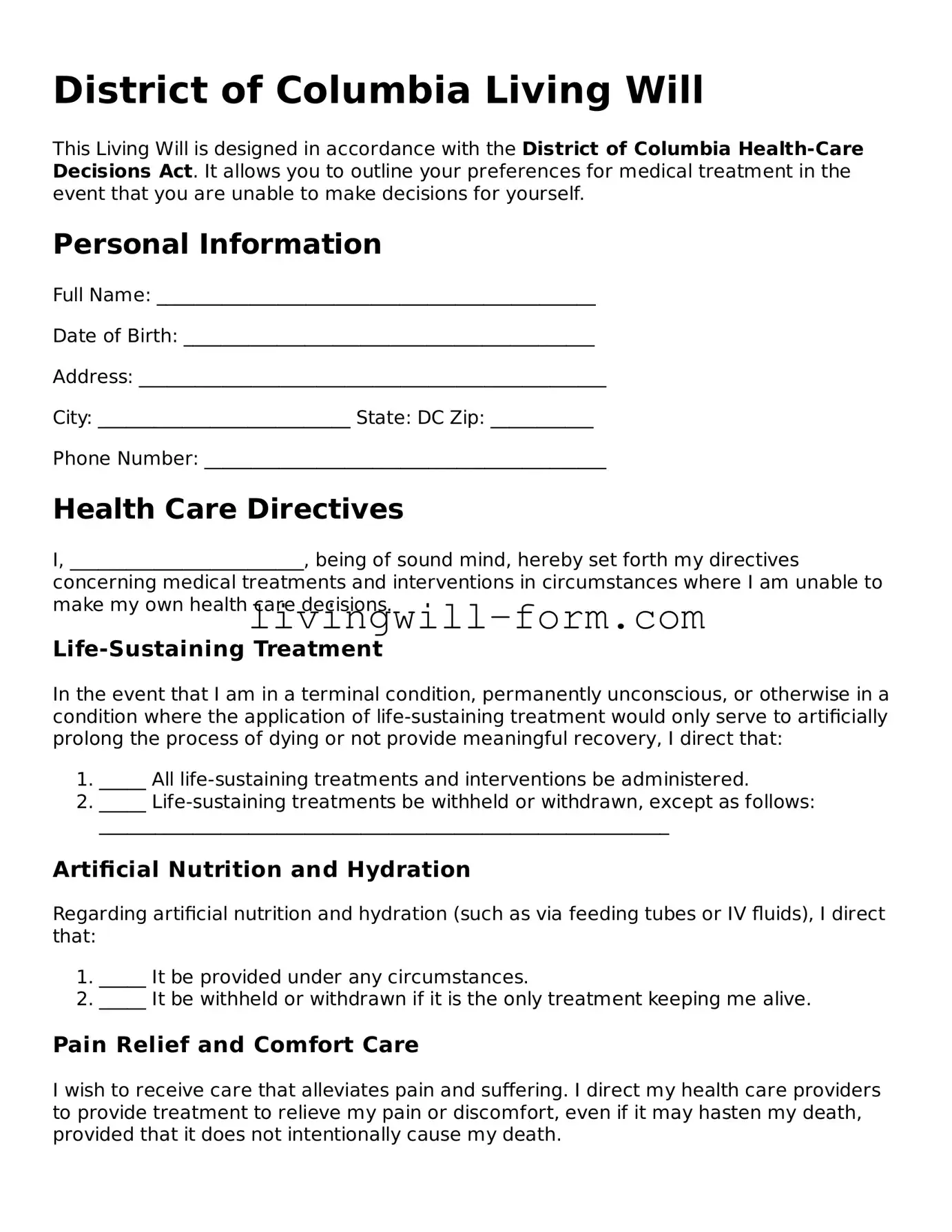District of Columbia Living Will
This Living Will is designed in accordance with the District of Columbia Health-Care Decisions Act. It allows you to outline your preferences for medical treatment in the event that you are unable to make decisions for yourself.
Personal Information
Full Name: _______________________________________________
Date of Birth: ____________________________________________
Address: __________________________________________________
City: ___________________________ State: DC Zip: ___________
Phone Number: ___________________________________________
Health Care Directives
I, _________________________, being of sound mind, hereby set forth my directives concerning medical treatments and interventions in circumstances where I am unable to make my own health care decisions.
Life-Sustaining Treatment
In the event that I am in a terminal condition, permanently unconscious, or otherwise in a condition where the application of life-sustaining treatment would only serve to artificially prolong the process of dying or not provide meaningful recovery, I direct that:
- _____ All life-sustaining treatments and interventions be administered.
- _____ Life-sustaining treatments be withheld or withdrawn, except as follows: _____________________________________________________________
Artificial Nutrition and Hydration
Regarding artificial nutrition and hydration (such as via feeding tubes or IV fluids), I direct that:
- _____ It be provided under any circumstances.
- _____ It be withheld or withdrawn if it is the only treatment keeping me alive.
Pain Relief and Comfort Care
I wish to receive care that alleviates pain and suffering. I direct my health care providers to provide treatment to relieve my pain or discomfort, even if it may hasten my death, provided that it does not intentionally cause my death.
Health Care Agent
In the event I am unable to make my own health care decisions, I designate the following individual as my Health Care Agent:
Name: ___________________________________________________
Relationship: ____________________________________________
Phone Number: ___________________________________________
Alternate Phone Number: __________________________________
If my primary Health Care Agent is unavailable, unable or unwilling to act, I designate the following individual as my alternate Health Care Agent:
Name: ___________________________________________________
Relationship: ____________________________________________
Phone Number: ___________________________________________
Alternate Phone Number: __________________________________Signature
This document reflects my personal wishes and I understand its contents fully. If any part of this document is held to be invalid, it is my wish that the rest of my directives be honored.
Signature: _______________________________________________
Date: ____________________________________________________
Witness
I attest that the individual signing this document is known to me, has voluntarily signed this document in my presence, and appears to be of sound mind and not under duress, fraud, or undue influence.
Witness Name: ___________________________________________
Witness Signature: ________________________________________
Date: ____________________________________________________

